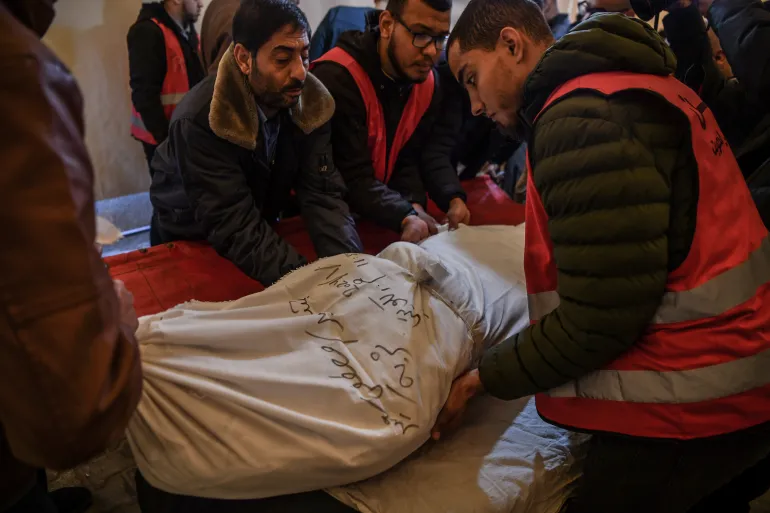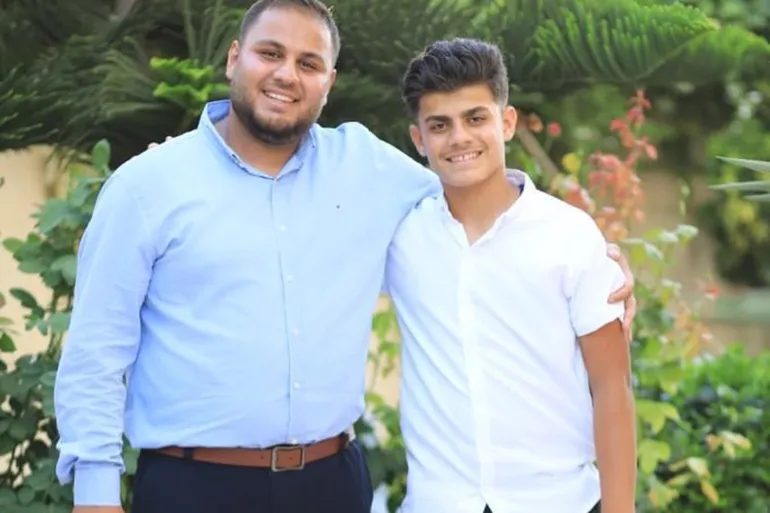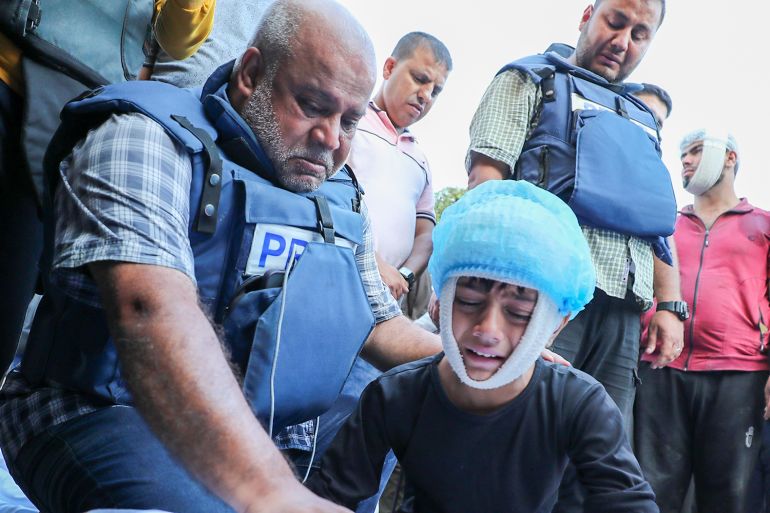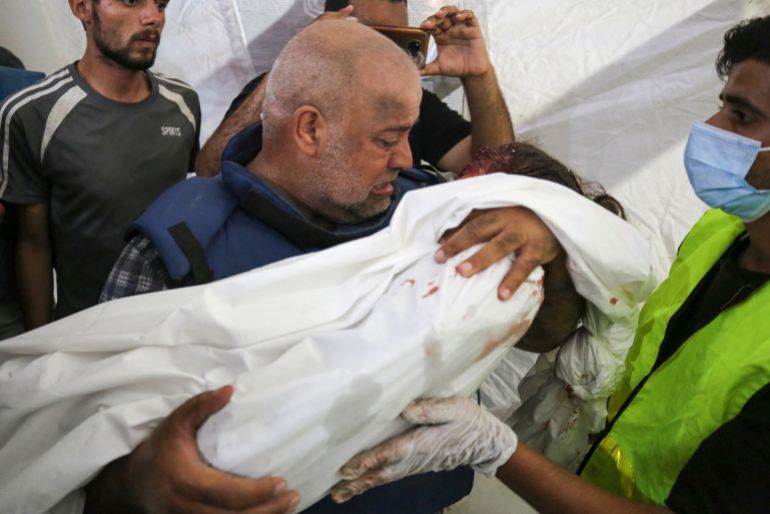An Israeli attack targeted the car he was travelling in with two other journalists.

Hamza Dahdouh, the eldest son of Al Jazeera’s Gaza bureau chief, Wael Dahdouh, has been killed by an Israeli missile strike in the western part of Khan Younis, Gaza.
Journalist Mustafa Thuraya was also killed in the attack, when the vehicle they were travelling in near al-Mawasi, a supposedly safe area towards the southwest, was struck by the missile. A third passenger, Hazem Rajab, was seriously injured.
According to reports from Al Jazeera correspondents, Hamza and Mustafa’s vehicle was targeted as they were trying to interview civilians displaced by previous bombings.

Hamza, 27, was a journalist like his father. Mustafa was also in his 20s.
Speaking from the cemetery where his son had been laid to rest, Wael seemed subdued yet resigned, saying he was one of the droves of people in Gaza today who are bidding bitter farewells to their loved ones every day.
He vowed to remain on his path of showing the world what is happening in Gaza, despite the pain of one loss after another.
“Hamza was everything to me, the eldest boy, he was the soul of my soul… these are the tears of parting and loss, the tears of humanity,” he said.
The Al Jazeera Media Network strongly condemned the attack, adding: “The assassination of Mustafa and Hamza … whilst they were on their way to carry out their duty in the Gaza Strip, reaffirms the need to take immediate necessary legal measures against the occupation forces to ensure that there is no impunity.”
Reacting to the news, Gaza’s media office condemned the killing of the two journalists, denouncing “in the strongest terms this heinous crime”.
Continuous pain
Hamza was extremely attached to his family and was devastated when he heard on October 25 that an Israeli raid had hit the house his family was sheltering at in the Nuseirat refugee camp.
He found out shortly after that his mother Amna, brother Mahmoud, 15, sister Sham, 7, and nephew Adam, 1, had been killed in the Israeli attack. His grief after their loss seemed to motivate him to work harder on covering the war on Gaza, according to his colleague.

As news of Hamza’s killing spread, his wife of one year rushed to the cemetery, as did his surviving siblings, for one last look before he was buried.
Wael stood by his son’s head, consoling the rest of his family as they tried to comprehend the sudden loss.
His composure and strength have made Wael Dahdoud much more than the Al Jazeera Arabic bureau chief in Gaza. He is the face of the channel’s coverage of Israel’s war on Gaza and a symbol of the resilience of Gaza’s people.
When he lost his wife, son, daughter, and grandson to the Israeli air raid at the end of October, the world watched, aghast, as he ran into the hospital where the bodies of his four loved ones had been moved.

After saying his emotional goodbyes to his children, grandchild, and life partner, he also seemed more determined than ever to perform his job.
Then in mid-December, he was badly injured in an attack that killed his colleague Samer Abudaqa, but he was again out and about covering the news shortly after.
The Palestinian Journalists Syndicate has documented the killing of 102 journalists and the injury of 71 others by Israeli forces since hostilities began in October.
The list of Al Jazeera journalists and staff who have lost members of their families or have died themselves is also growing.
In December, Anas al-Sharif lost his father to an Israeli air raid that struck his family’s house in Jabalia.
A few days earlier, on December 6, Moamen Al Sharafi, a correspondent for Al Jazeera Arabic, had 22 members of his family killed when an Israeli attack hit the house they were sheltering in at the Jabalia refugee camp.
In late October, broadcast engineer Mohamed Abu Al-Qumsan lost 19 members of his family, including his father and two sisters, during Israeli air raids on the same refugee camp.
